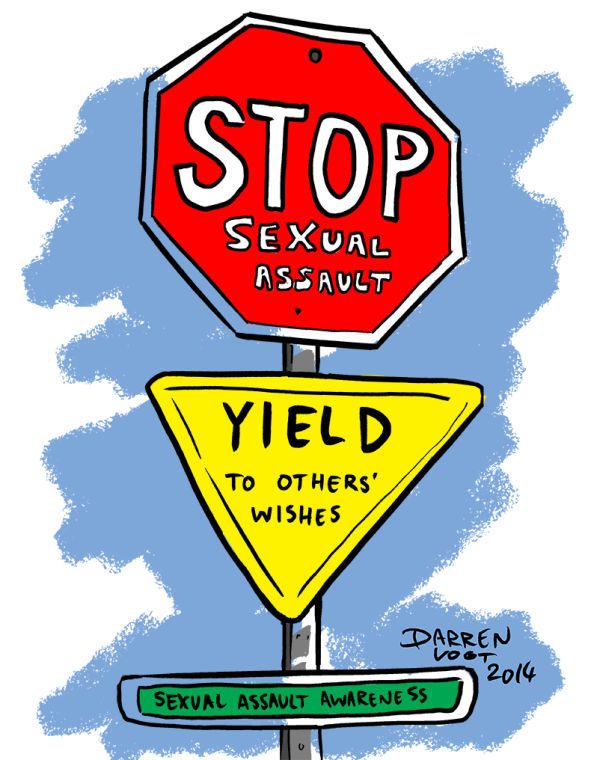EDITORIAL: No more blame games
March 4, 2014
THE ISSUE: March is Sexual Assault Awareness Month in Kentucky, and WKU will be participating by holding events throughout the month, including a self-defense class, The Clothesline Project, which helps begin the healing process for those who have experienced sexual violence and “Walk a Mile in Her Shoes,” which has garnered national attention in the past.
OUR STANCE: We encourage WKU students, faculty and staff to take advantage of the opportunities provided in March, if only to gain a better understanding of the realities of sexual violence.
Every two minutes, an American is sexually assaulted, with 60 percent of rapes going unreported and 97 percent of rapists escaping jail time, according to Rainn.org, the nation’s largest anti-sexual violence organization.
To narrow it down, one in four college women have reported surviving rape or attempted rape since their fourteenth birthday. In a typical academic year, the site reports 3 percent of college women surviving rape or attempted rape, and 3 percent of college men reporting surviving rape or attempted rape as an adult or child, according to oneinfourusa.org.
With these statistics in mind, the first thing that we as a society need to acknowledge about this is that a rape or sexual assault is never the victim’s fault; it is the assaulter’s. Unfortunately, we live in an age when victim-blaming is commonplace.
Comments like “Her skirt was too short,” “She led him on,” “If he paid for dinner she owes him sex. She’s just a tease,” “He was weak, he could’ve fought back if he were a real man,” pervade many conversations and frankly, we’re sick of it. Unless a person verbally consents to sexual intercourse or interaction, one should always assume the answer is no, with no exception.
Another unfortunate symptom of the current way in which society treats sexual assault is that so many people have become rape apologists.
A recent national example of this comes from the Steubenville rape case, which occurred on August 11, 2012, when two high school football players allegedly raped a 16-year-old girl.
The players were later arrested and convicted of the crime, and the case garnered national media attention.
Unfortunately, much of the media attention, including coverage from CNN, focused on the ruined careers of the football players and the loss of their “promising futures,” according to Huffington Post.
Never mind that a 16-year-old girl was raped and may never recover from the experience of the actual event and the horrible derogatory comments made about her on the internet. No, instead CNN found the boy’s loss of potential professional football careers the real tragedy in the case.
And this is just one example of something that unfortunately continues to happen.
Does this example make you angry?
Good.
Do you want to do something about it?
Attending the events on campus during the month of March are a good way to start.
This editorial represents the majority opinion of the Herald’s 9-member editorial board.












